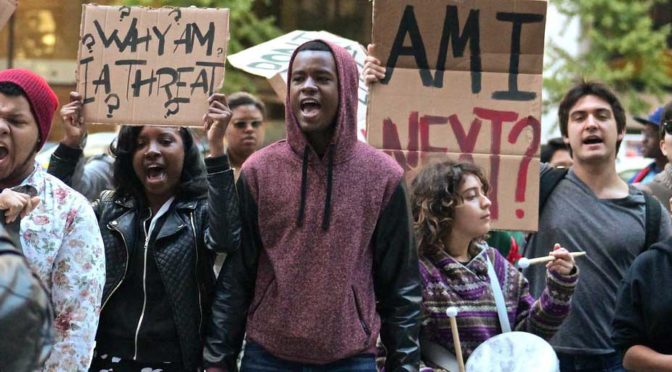Tuesday 21 May
Activist: Kevin Blowe (NetPol)
Historians: Anja Johansen (Dundee), Jonah Miller (KCL)
Key questions:
- How is police violence discussed? What does ‘policing by consent’ mean and how is it understood?
- How and what can be learnt from the history of how different groups in society interact with (or are demonised by) police?
- How is the language of ‘extremism’ used to label and ‘other’ an ‘enemy’ the police can be aggressive towards? How does this relate to the concept of the ‘mob’ and fear of political insurrection through history?
- How does Britain’s history of imperialism inform modern-day practices of policing?
- What alternatives are there (or are possible) for responding to crime that don’t involve police crack-downs?
- What is the impact of Liberalism on police practice, accountability, and access to complaints systems?
- How can understanding legal structures around bringing charges against police officers help us understand accountability?
- How can historical records from different periods help us understand contemporary accountability (bearing in mind records can be retrospectively closed)? How can activists create our own records in helpful ways?
- What is the role of the press in challenging the police and what impact has this had historically and can it have now?
- What does success look like in advocating for victims of police violence?
- Is there scope to press for change on policing within Labour, perhaps by pitching surveillance as a human rights issue?
The History Acts session on 21 May brought together Kevin Blowe, coordinator of the Network for Police Monitoring (NetPol) and historians of policing Anja Johansen (Dundee) and Jonah Miller (KCL) to discuss what value history could have in working against police violence and increasing police accountability. Here is a brief summary of some of the issues and ideas that were discussed.
A key point of discussion was how to bridge the gap between audiences who do not personally experience police violence and the experience of demonstrators and groups who face police repression regularly or continually. NetPol focuses on issues including stop-and-search, violent arrests, and police harassment, and supports the families of people who have died in police custody. Jonah Miller offered historical examples of similar policing practices from the 18thcentury. It was agreed that history can be used to show those not habitually subject to police violence how these tactics are used and how quickly the contexts in which they are applied can change. The panel discussed how modern recording and dissemination technologies can help to spread awareness and give the police less control over the narratives around incidents of police violence, although this has not led to increased police accountability.
The panel agreed that the language around policing was important. Police violence tends to be discussed as an aberration or tragedy. By comparison the language around ‘extremism’ is used to create a criminalised, enemy ‘other’ that justifies police violence and surveillance against people labelled in this way. NetPol calls for the label ‘extremist’ to be scrapped as it has no legal basis.
The group discussed the influence of imperial history on modern-day police practices and how this underpins the normalisation of an armed police presence. This is frequently linked to a fear of political insurrection and ‘mob’ uprisings.
The discussion turned to how police might be held accountable. Anja Johansen argued that it is crucial that citizens are able to bring charges against police officers. Jonah Miller added that before the police force was professionalised criminal trials of police constables were common and regularly led to convictions. Some historical examples of mobilisation against police power by the press, politicians, individuals, and legal lobbying groups were discussed; however, these often lacked support or developed in different political directions, dropping their focus on police accountability. This raised the question of the hollowing-out of legal aid and the fact that fewer lawyers are able to dedicate time to Pro Bono work. This means individuals face a growing difficulty in bringing legal cases. The possibility of a National Legal Service was raised.
The group discussed the privatisation of public spaces, ‘public space protection orders’, and the criminalisation of ‘anti-social behaviour’ such as rough sleeping, and how these form part of a narrative around the policing of ‘public order’. This climate is currently heightened by issues such as Brexit and climate change protests, increasing the likelihood of police violence. Increased surveillance in the form of facial recognition technology and ‘information-led’ investigations was also discussed.
Kevin Blowe raised the issue of the recent closure of previously open records relating to cases of police violence. The Undercover Research Group has traced these closures. Activists have also kept their own records, but these have not yet been reviewed, compiled, or curated. NetPol activists are currently writing a handbook on setting up a police monitoring network. This would be a good call for historical research.

